Humans are an exceptionally unique species among the creatures on Earth. We are the only species that has developed high intelligence, wears clothes, cooks food, invents smartphones, and creates self-driving cars…
But what would happen if humans suddenly went extinct? Which other animal species could evolve to possess intelligence and the ability to create complex, expansive societies like ours?
One thing is certain: if we were to suddenly go extinct, the environmental consequences we have caused would not disappear immediately. Climate change would continue to push many species towards resilience to temperature in order to survive. Cold-adapted species would also continue to struggle for survival, meaning that polar bears and penguins may not thrive for many millennia after humans vanish.
A characteristic that enables humans to build and innovate flexibly is our dexterous hands. To fulfill an ecological role similar to that of humans—namely, building cities and improving the environment—another species would need to develop similar capabilities to manipulate objects.
Other primate species, such as chimpanzees (Pan troglodytes) and bonobos (Pan paniscus), previously known as dwarf chimpanzees, are our closest living relatives and have opposable thumbs that they use to craft tools in nature. It is possible that if humans went extinct, these species could replace us, leading to a future reminiscent of “Planet of the Apes.”
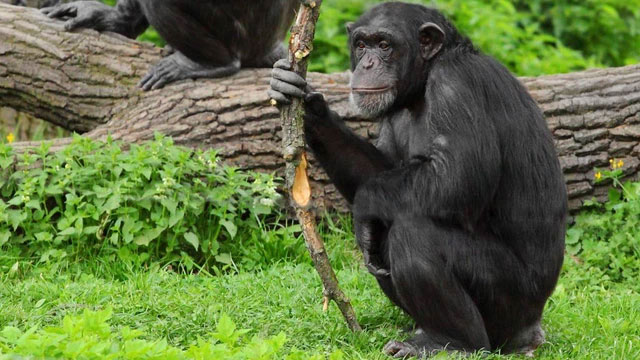
If humans go extinct, dwarf chimpanzees could replace us.
There is precedent for such a replacement; our species has outlasted intelligent Neanderthals during the last Ice Age around 40,000 years ago, according to a 2021 study published in the journal Nature. However, it may take hundreds of thousands or even millions of years of evolution for other ape species to develop the ability to create and use sophisticated tools like humans do. The common ancestor of modern humans and chimpanzees lived about 7 million years ago.
But any disaster strong enough to wipe out humans would likely also eradicate chimpanzees and their relatives, which leads us to seek a candidate that can use tools to fill the void left by humans: birds.
When the non-avian dinosaurs went extinct 66 million years ago, mammals rose to fill their ecological niche. If humans were to disappear, it is possible that birds, the only surviving descendants of dinosaurs, would take on our role as the smartest and most dexterous land animals.
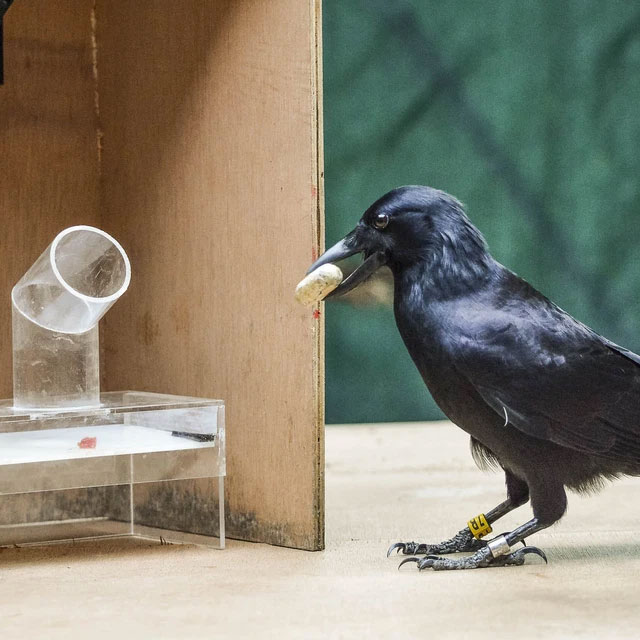
Crows have intelligence comparable to chimpanzees.
Some bird species, such as crows, possess intelligence on par with chimpanzees, according to research published in 2020 in the journal Science. Additionally, some birds can use their agile feet and beaks to fashion hooks from strands of wire, as demonstrated in a famous 2002 study published in Science.
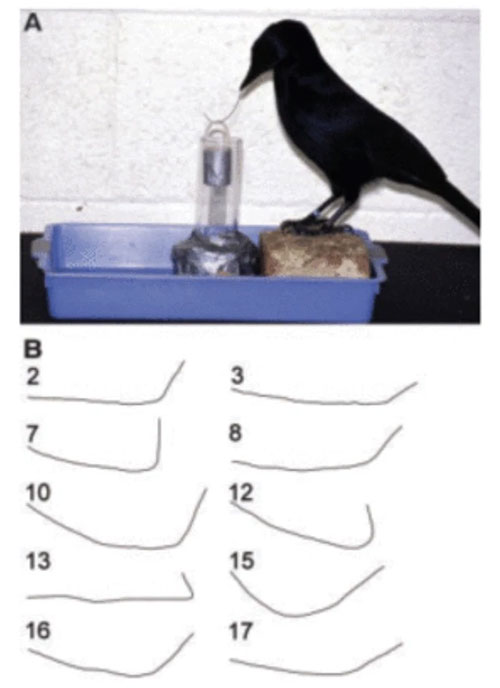
Some birds can use their feet and beaks to fashion hooks from strands of wire.
Meanwhile, the African grey parrot (Psittacus erithacus) can be trained to learn up to 100 words and perform simple arithmetic, grasping concepts like “zero.”
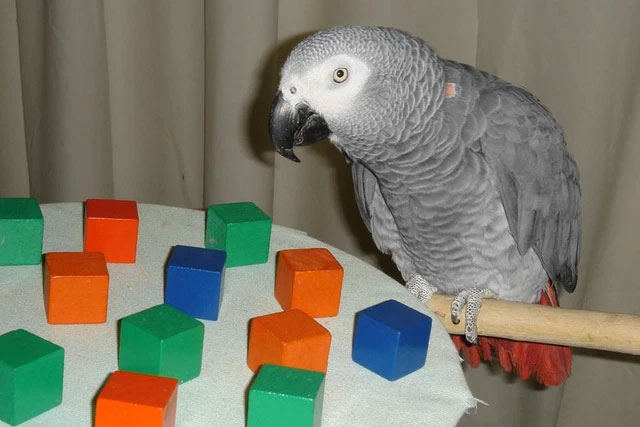
African grey parrot.
Birds can gather in large flocks, and some species, such as the sociable weaver (Philetairus socialus), even build communal nesting sites. According to research published in the journal Frontiers in Ecology and Evolution, some weaver nests are still in use decades later.
However, there is another group of animals that excels at manipulating objects with their limbs—eight limbs, to be precise.
Octopuses are perhaps among the most intelligent animals on Earth. They can learn to distinguish between real and imaginary objects, according to a 2020 study published in The Biological Bulletin. They can even modify their habitats by removing algae from dens and barricading entrances with shells. They also live in communities.
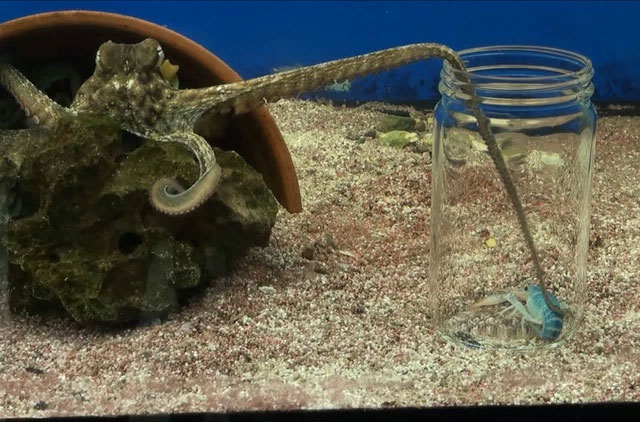
Octopuses are among the most intelligent animals on Earth.
However, octopuses would struggle to adapt to life on land. Vertebrate animals have iron in their blood cells, which binds efficiently with oxygen. In contrast, octopuses and their relatives have blood cells containing copper. These molecules still bind with oxygen, but not as effectively, resulting in octopuses being limited to oxygen-saturated water rather than thin air.
Thus, octopuses and their relatives are unlikely to transition to land and become the smartest terrestrial animals. Researchers suggest that social insects, such as ants and termites, have a higher potential.
Insects are well-adapted to a variety of environments. They have existed for about 480 million years, according to the Natural History Museum in London. During this time, they have evolved to fill nearly every conceivable niche, from flying to burrowing to swimming and even constructing complex tower-like structures resembling cities.
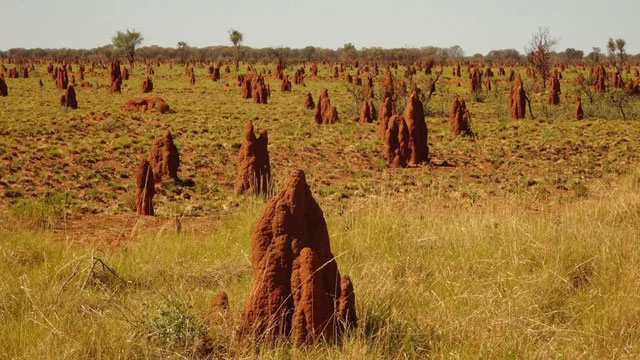
Termite mound.
The social behaviors of ant and termite colonies may resemble human civilization more than any other species on Earth. According to a study published in the journal Proceedings of the Royal Society B in 2017, ants can cultivate fungi in their nests, and termites can communicate over long distances within their colonies using vibrations. If humans were to go extinct, it is possible that these insect colonies would take over the world—assuming they survive climate change.
Of course, all of this is purely hypothetical; we can hardly predict how evolutionary processes would unfold on a geological timescale. The emergence of another species to replace humans is conceivable, but it would take millions of years of proper selection. However, some scientists are less optimistic, believing that “nature will not make that mistake a second time.”


















































